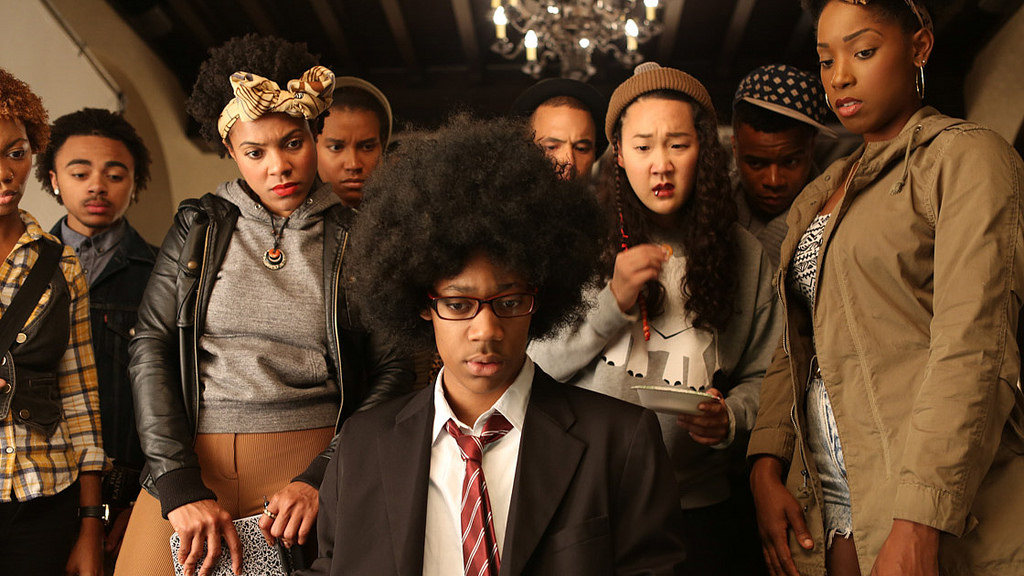Dear White Gusties,
if you are looking for a fun, casual, and entertaining way to get educated on racism, I suggest you head to Netflix and turn on the recently released Netflix original “Dear White People.”
The show revolves around protagonist Samantha White, host of radio talk show, “Dear White People”, at Winchester University, a generic, private, Ivy League institution. Opening with the aftermath of a blackface party hosted by a prestigious student-run satire magazine, each episode is from the perspective of a different student involved in the events.
These different perspectives tell an enthralling story full of woke jokes and humorous belittlement of whiteness. The series seems oddly familiar, although I could not imagine that the Gustavus administration would allow a culture of racism as bad as the one at Winchester to persist right here on our harmonious and peaceful campus.
The series is extremely well-written, incorporating relevant political dialogue into each student’s unique understanding of themselves, their surroundings, and their experiences in relation to the institutions of white supremacy. The characters passionately and eloquently explain their positions in ways that call out problematic white attitudes and allude to the systematic nature of racial oppression. But have no fear, fellow White Gusties, this show takes the time to explain exactly why certain white behaviors and attitudes can be problematic, like why constantly touching that one-black-guy-from-the-floor-below’s afro makes you look like a clueless dolt. The multiple perspectives of black students allow white viewers to cultivate empathy and relate to the characters, while exposing them to the harm caused by white supremacy in the daily lives of black students.
I truly appreciate this show because it simultaneously makes jokes at the expense of white identity while acknowledging the connections to the larger system of white supremacy. We see well-meaning white students unconsciously committing racial micro-aggressions or perpetuating stereotypes, but they are not portrayed as terrible people. This juxtaposition drives home an important point- good people perpetuate racism, people you trust and love perpetuate racism, and you probably perpetuate racism. This is a valuable narrative, given the tendency for discussions on race to be dichotomized, resulting in little chance for meaningful dialogue. What we as whites continually fail to realize is that white supremacy flourishes through white silence, ignorance, and complacency.
Hate crimes, attacks, and slurs are highly visible manifestations of white supremacy, one possible result of whites refusing to see the myriad of ways that they unconsciously support institutional racism. This is true of the situation in “Dear White People”. POC call out their white peers for problematic behaviors, only to be met by evasiveness, defensiveness, and anger- mechanisms white people learn through socialization, which serve to preserve white supremacy, and allow whites to feel less uncomfortable when called out for something. By remaining silent or claiming ignorance to the consequences of our actions, we participate in white supremacy. If someone calls you out for doing something problematic, realize that it’s not a personal attack, but an invitation to understand how your actions have affected others with different lived experiences in ways you may not have imagined. At the end of the day, shouldn’t we all want to be called out on our racist behaviors if it contributes to the end of a system of violence against POC?
Let’s bring things back to good old GAC, home to white liberalism and community forums. My intention is not simply to critique the Gustavus administration, but to call attention to the harm that is perpetuated every time we sweep racial conflict under the rug.
Let’s not forget the woman who thought dressing as a terrorist by wearing a towel on her head was an acceptable costume to wear to her sorority’s party. Was this hateful act met with immediate administration attention or sufficient public retribution? No. More recently, where has the outrage gone over the fake bias incident planned by DLC? It has simmered back under the surface, but as a majority white campus, most of us have the privilege of forgetting. White privilege is a blindfold that we wear to escape seeing the consequences of all the things we benefit from.
We need to recognize that every hate crime and bias incident we leave unresolved and unreconciled is an act of violence and dehumanization against students of color. I am calling on my white peers to exhibit radical empathy in the face of these incidents and to understand that demands for racial justice and the abolition of whiteness will benefit us all. When we ignore uncomfortable racial dialogue, we create divisiveness that festers silently, weakening our community.
“Dear White People” is certainly not the first effort to tackle white supremacy through media, but it is uniquely positioned to be applicable to Gustavus. If we can see the unconscious ways we perpetuate racism, we are better equipped to stop them. If we, as white people, can reconcile with the fact that we are all racist in some capacity due to the institutions we were born into, we can engage in productive dialogue uninterrupted by guilt or defensiveness. We all love Netflix binges, why not use this one to get a little more woke?
